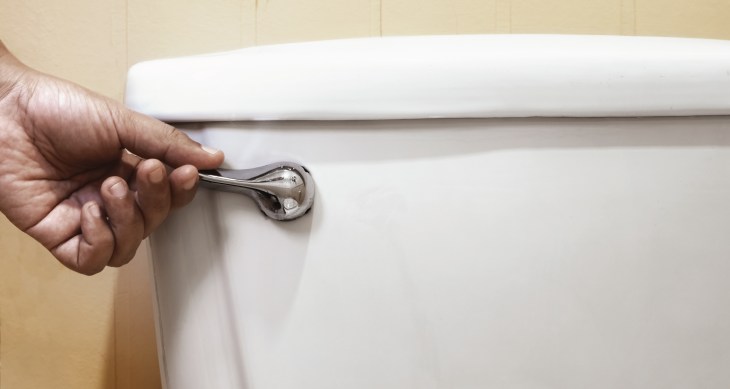Chances are you used a toilet at some point today, and you didn’t think much of it.
But if you used a port-a-potty, you probably did think about it. Maybe a lot. And it probably wasn’t pleasant.
“No one likes the port-a-potty,” said Brophy Tyree, co-founder and CEO of Wasted. “It’s embedded into a really antiquated operations and servicing industry and so there’s a chance to make all of that better.”
But Tyree, along with co-founders Thor Retzlaff and Taylor Zehren, wants to do more than just redesign the smelly plastic boxes. The company’s first order of business is to turn the waste from port-a-potties into fertilizers for farmers.
“Farmers have been applying manure and other forms of animal waste to farms for millennia,” Tyree said. “When you talk to a farmer, they completely understand the value proposition right away. You don’t need to educate them on the fact that what’s coming through our body is valuable and has nutrients, because that’s just the water that they swim in.”
Human waste contains plenty of nutrients, but urine appears to be the real gold mine. Urine contains a lot of nitrogen, phosphorus and potassium, and wastewater in cities contains enough of the nutrients to offset around 13% of global fertilizer demand, according to one study.
Today, human waste is used as a fertilizer in some places. King County in Washington sells a biosolids soil amendment to farmers and foresters, for instance, and Milwaukee sells Milorganite to farmers and homeowners. They’re excellent examples of the reuse of human waste, but those products emerge at the end of a traditional sewage treatment process, which is energy intensive and vulnerable to severe storms and flooding.
Wasted wants to eventually serve as a backup for traditional sewage systems or even a replacement, particularly in regions where sanitation systems are underdeveloped. But it’s starting with port-a-potties for a few reasons.
First, port-a-potty businesses tend to be pretty modular, with about one driver and a truck to service 200 units, Tyree said, which makes scaling relatively straightforward. Second, he said the industry has relatively comfortable margins. That, combined with the fact that the startup will ultimately sell the waste it collects, means it should be able to undercut existing providers.
To make it all work, though, Wasted needs to divert most or all of the urine into a separate tank. When urine and feces mix, the bacteria in the feces immediately go to work breaking down the urea in the urine. That releases ammonia gas, which not only smells bad but removes valuable nitrogen from the urine. Separation slows the breakdown of urea, and it makes processing Number One and Number Two easier.
The startup’s first commercial product will largely resemble a regular port-a-potty. The first units will be placed mostly at construction sites. Not only does construction represent 60% of the port-a-potty market, Tyree said, but around 90% of the workers in the industry are male, so a simple urinal piped to a separate tank will handle most of the urine diversion.
Once the waste is trucked to the company’s processing facilities, the urine will be sterilized to remove pathogens and pharmaceuticals.
The company is testing a few new port-a-potty designs, too, with a goal of making them “feel good and dignified,” Tyree said. The port-a-potty industry has been “very male dominated,” he added. “You sit down in the port-a-potty and the urinal’s right in your face because it wasn’t designed for people who sit in the port-a-potties. It was designed for men to pee in it.”
Today, the company announced that it closed a $7.5 million seed round from Collaborative Fund, Day One Ventures, Third Sphere, Divergent Capital, Pure Ventures, Riverstyx Foundation, Gratitude Railroad, Susquehanna Foundation and more.
With that money, Tyree said that Wasted will be deploying 200 port-a-potties to construction and event sites around Burlington, Vermont, where the company is based. Next year, the startup hopes to expand to a second market.
Ultimately, Tyree hopes that his startup can broaden the conversation around sustainability. “If you can inspire people with poop and pee to live a different paradigm, then you can do it in any industry.”
